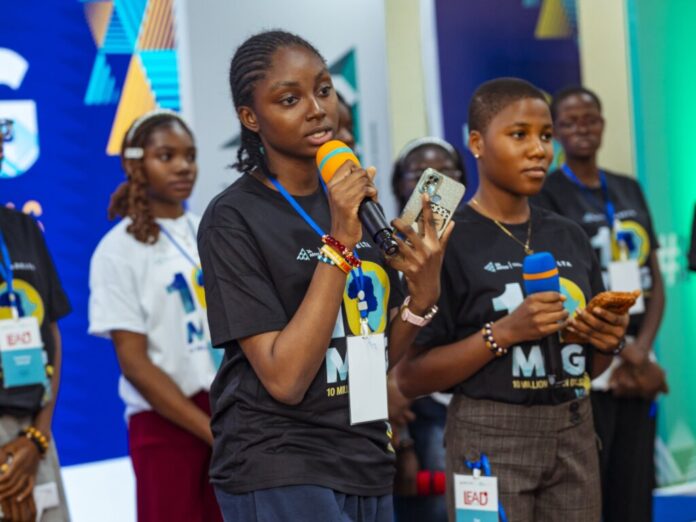ACCRA, Ghana,
With support from Google.org through USD $1.5 million funding, will deliver digital literacy and online safety education to children, teachers, and parents across Ghana, Kenya, Nigeria, and South Africa.
Through this groundbreaking initiative, JA Africa will implement Google’s Be Internet Awesome (BIA) curriculum, empowering 250,000 children aged 7–15, 6,000 teachers, and 8,000 parents and caregivers with the skills and confidence to explore the digital world safely and responsibly by 2027.
As internet access expands across Sub-Saharan Africa, many children are coming online for the first time without the knowledge or support needed to navigate digital spaces safely. Recent studies show that in Nigeria, more than 70 percent of children aged 6–12 use the internet but lack basic safety awareness. Similar patterns appear in Ghana, Kenya, and South Africa, where online risks such as cyberbullying, harassment, and exploitation remain widespread.
“As digital connectivity becomes the foundation of modern life in Africa, our children must be equipped not only to participate, but to be protected,” said Simi Nwogugu, CEO of JA Africa. “With funding from Google.org, we are helping young people turn access into opportunity, building a generation of smart, safe, and kind digital citizens.”
Developed by Google, Be Internet Awesome teaches the fundamentals of digital safety through interactive lessons and Interland, a gamified online platform that makes learning about privacy, cyberbullying, and media literacy fun and accessible for children.
“At Google.org, we believe that every child should be able to explore the internet with confidence and care,” said Alessia Scarpellini, Senior Program Manager, Child and Youth Safety and Digital Wellbeing, Stronger Communities, Google.org EMEA. “By supporting JA Africa’s proven community-based model, we’re helping educators, caregivers, and young people across the continent build the skills to be safe, confident explorers of the online world.”
The program will be delivered through school-based workshops, teacher trainings, and community outreach, ensuring equitable access even in underserved and rural areas. It also aligns closely with national child-protection and ICT-in-education priorities, including Ghana’s National Child Online Protection Framework, Nigeria’s Child Online Protection Policy and Strategy, and Kenya’s Industry Guidelines for Child Online Protection.
Key Program Targets by 2027
● 250,000 children trained on online safety, cyberbullying, privacy, and digital citizenship
● 6,000 teachers certified as facilitators to integrate BIA into classrooms
● 8,000 parents and caregivers engaged through workshops and digital learning modules
● Over 750,000 people reached directly and indirectly across four countries
The initiative will be amplified through awareness campaigns, digital storytelling, and flagship events such as Safer Internet Day 2026, ensuring that messages about online safety reach millions more across Africa. JA Africa and Google.org will also collaborate with Ministries of Education, ICT, and Communications to embed the curriculum into school systems and teacher-training frameworks for long-term sustainability.
“This underscores the power of collaboration in safeguarding Africa’s future generation,” Nwogugu added. “When governments, educators, families, and the private sector work together, we can build a safer, more inclusive digital Africa for every child.”
By James Kisoo



















